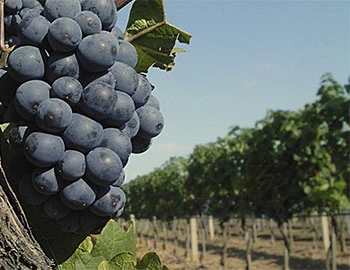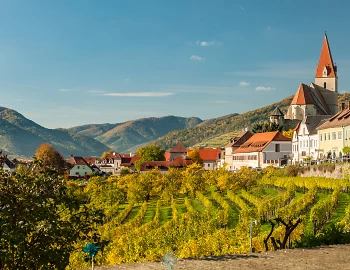Cecilia (rosé) 2021
QWt Burgenland, Gut Oggau, 1500 ml

| Producer: | Gut Oggau |
| Origin: | Austria / Burgenland / Neusiedlersee |
| Other bottle sizes: |
Description
May we introduce our new Oggau family member! Cecilia! You see her, you taste her, you feel her, she inspires you. She doesn't care about conventions and doesn't let herself be pigeonholed. She shows that it's good to be a little different. Mixed in white and red, rooted on limestone, she shines brightly and defines herself much more beyond the known paths. The limestone soil releases a distinct character. This is meant to be just the beginning of a journey we want to take together. A journey into the true self, without any pretence. Cecilia is less about impressing, just about remaining independent and free. A 1.4ha plot planted in mixed set (red and white grape varieties) recultivated by Steffi and Eduard. 2/3 of the grapes are pressed directly and 1/3 are crushed. The must is fermented spontaneously in large wooden vats and is neither fined nor filtered nor additionally sulphurised during the ageing process. Matured in 1500l wooden barrels of the Stockinger cooperage. A mix of white and red. A fresh, deep and mineral rosé that shines in a delicate red in the glass. A taste explosion. Rosehip, wild strawberries and a little rose. Consistently dry and mineral. A solitaire and a rosé that is completely "out of the box". Great stuff!
Attributes
| Origin: | Austria / Burgenland / Neusiedlersee |
| Label: | Vegan, Certified organic or biodynamic wine |
| Ripening potential: | 2 to 5 years |
| Drinking temperature: | 10 to 12 °C |
| Vinification: | fermentation with grapes' own yeast, fermentation in wooden barrel |
| Volume: | 12.0 % |
| Note: | Contains sulphites |
Gut Oggau
What’s the secret of the wines of Austria's Gut Oggau?
Gut Oggau wines are among the best organic wines in Austria, and are produced by Eduard Tscheppe and his wife Stephanie Tscheppe Eselböck on the shores of Lake Neusiedl in Burgenland.
Before Eduard founded the winery, he produced conventional wine with his father in Styria, while Stephanie’s family owned and operated the Michelin-star restaurant & hotel Taubenkobel. They restored the 17th century winery, which had been abandoned for many years. When the restoration was completed in 2007 they started with nine hectares. Today, almost 15 years later, they own 15 hectares and are Demeter certified. The previous owner of the winery was a 92-year-old woman with no children. She hadn’t tended the vineyards for several years. That was an exciting challenge for the young couple. Fortunately, there had been a gap of several years between owners, so the soils had a chance to recover from the chemicals that had been used previously. It was important to Stephanie and Eduard not to change the vineyard, and instead they embraced its natural potential. From the very beginning their approach has been to work with nature and to handle the soil and the vines with great care with the focus on sustainability. They were amazed at just how much character the barrels revealed in the very first vintage; each wine seemed so alive, shining bright with its own personality – and thus the Gut Oggau family was born.

Burgenland
Burgenland: Reds, sweets and other wonders
Burgenland is often referred to in Austria as the new wine world. In fact, wines – with exceptions like the nobly sweet Ruster Ausbruch – were almost entirely unknown here 20 years ago. Today, the most substantial red wines in Austria mature here. And the sweet wine scene is also stronger than ever before. Even the whites – for instance, in the Leitha Mountains – are on the upswing. The basis for this wine wonder are the various terroirs that overlay the land in a complex patchwork.

Austria
Austria – Sumptuous culture, accessible to all
Austria is characterized by unbelievable topographical diversity. A flat steppe in the east, forests and hills in the Alpine regions, wetlands and Mediterranean landscapes in the south. This in addition to a rich tradition and even greater love. It’s no surprise that the Romans found joy on this patch of Earth and cultivated wine growing. Austrian wine is not abundant, but it is high quality.



